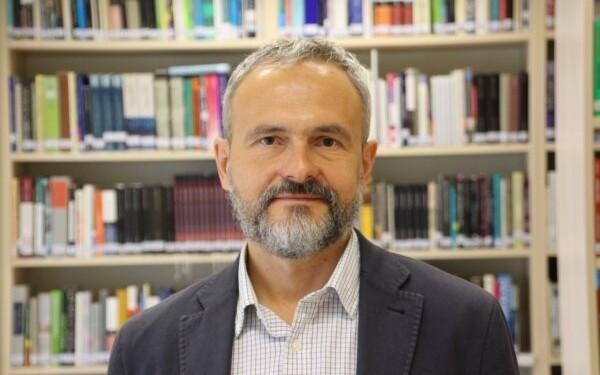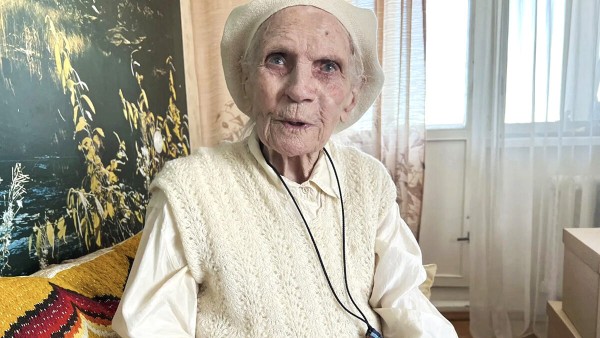
Efrem Lukatsky/AP
Putin’s move was enabled by a series of constitutional amendments rammed through last summer under the cover of the pandemic. Buried among a bewildering array of amendments — 206 in total — was a clause written in opaque legalese that gives Putin a personal waiver from presidential term limits, allowing to him to remain in the Kremlin past the end of his current and final mandate in May 2024.
The Kremlin could have subjected this change to a real referendum — as, for example, Chilean dictator Augusto Pinochet did in 1988. But there’s a good reason why Putin didn’t dare — because he knew it would have likely failed. Even in authoritarian Russia, where people are understandably hesitant to share political views with strangers, polls showed that the prospect of continued rule by Putin had support from only 48 percent of voters, with 47 percent opposed. Under Russian law and Russia’s binding international obligations, a genuine referendum would have provided for clear ground rules, an opportunity to campaign on both sides and independent observation. Given such conditions, the Kremlin was conspicuously unwilling to gamble on the outcome.
Instead, last summer, the package was submitted to an ill-defined “plebiscite” — a term borrowed from Europe’s fascist dictatorships of the 1920s and 1930s — that scorned the most basic principles of electoral competition. No campaigning was allowed. No international observers were invited. State institutions and national media openly worked for the “Yes” side. Nongovernmental organizations that tracked the week-long vote found widespread evidence of organized coercion, multiple voting, ballot-stuffing and violations of ballot secrecy. Officially, 78 percent voted in favor of the amendments. Yet as the leaders of the U.S. delegation to the Organization for Security and Cooperation in Europe’s Parliamentary Assembly, Sen. Roger Wicker (R-Miss.) and Rep. Alcee L. Hastings (D-Fla.), concluded last year, “the outcome of this vote was decided long before the ballots were tallied.”
Public attitudes remain unchanged. A recent survey by the Levada Center polling agency showed support for Putin’s continued rule stuck at 48 percent, with 41 percent in opposition — that is, those unafraid to admit they are in opposition. Young Russians are overwhelmingly against Putin staying in power, with opposition reaching 51 percent among those ages 25 to 39, and 57 percent among 18- to 24-year-olds — namely, those Russians who have never known any other leader.
“We are seeing a rising fatigue with Putin,” says Denis Volkov, deputy director at the Levada Center. “Even those who support some of his past achievements are saying that he’s been in power too long.” Respondents who back Putin’s continued rule often do so reluctantly, citing the lack of an alternative. Indeed, not a single election in Russia since 2000 has been assessed by international monitors as free and fair. The vote in 2024 is not likely to be any different.
Except in one crucial aspect. Legally speaking, Putin has no right to run for president in 2024, the amendments and the new law notwithstanding. With every previous power grab, even when he clearly violated the spirit of the law, Putin was careful to pretend to follow its letter — as he did when naming a puppet president (Dmitri Medvedev) to circumvent term limits in 2008, or in the case of the 2018 presidential election, which was held without real opponents but technically conformed to the rules.
No longer. The 2020 constitutional amendments broke the law — not just the spirit, but the letter — in three important ways. First, Russian law specifically prohibits passing constitutional amendments collectively. Second, the first two sections of the Russian constitution cannot be altered except by a constitutional convention (which did not meet); they were altered on the sly, by amending other sections. Third, as already noted, the “plebiscite” ratifying the amendments was a sham. A European Parliament resolution passed last year drew the inevitable conclusion that the constitutional amendments in Russia have been enacted “illegally.”
Last month this conclusion was reinforced by Europe’s top constitutional law body, the Venice Commission, in its landmark opinion. Russia’s constitutional amendments “may amount to a serious danger for the rule of law,” the commission said and concluded that the procedure for their enactment was “clearly inappropriate.” As far as presidential term limits are concerned, Europe’s top legal experts have noted that they should serve as “a check against the danger of abuse of power” and that excluding Putin “contradicts the very logic” of this principle.
There can be only one political consequence from this legal ruling: international non-recognition of any attempt by Putin to overstay his term — and thus usurp power, this time not just politically but legally. Legitimacy must be a cornerstone of international relations. It was Putin’s choice to sever his last remnants of it — and Western governments must respond accordingly.
https://www.washingtonpost.com...
























